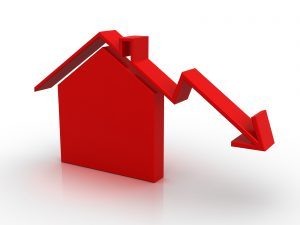Real Estate Price Declines
February 28, 2013

It is time to sound the alarm again on potential real estate price declines. We wrote about this several times last year. There continues to be news about the risk that the real estate bubble might be coming to an end.
Many people incorrectly think real estate is special and prices can only increase. In the world of finance, nothing is special. All asset classes can appreciate or decline. Economically it is just as simple as supply and demand.
If the demand for real estate declines, the price will soon follow. There is already evidence the demand is falling for Canadian residential real estate. Several factors can affect demand.
Professor George Athanassakos from the Richard Ivey School of Business has done some research that supports a price decline. He thinks that demographics are the key to real estate prices.
The higher the percentage of the population age 20 to 64, the stronger the demand for housing because people in their working years buy real estate. Professor Athanassakos predicts Canada’s changing demographics, caused by our aging population, will bring about a fundamental shift. That will put downward pressure on the demand for real estate and translate into lower prices.
Another danger sign is the value of housing as a percentage of Canada’s Gross Domestic Product which is now over 7 percent. That is above the historic average and close to the two previous high levels of the late 1970s and 1980s. In both those cases, there was a significant decline in the value of real estate.
A significant factor of demand is affordability. When our current historic low interest rates increase the Canadian debt, overextended consumers will not be able to afford the current high price levels. When your housing carrying costs increase regardless of actually being in the house purchasing age category, no matter how much you like a property, you will not be able to afford it.
Towards the end of last month, Moody’s Investors Services reduced the credit rating on five Canadian banks stating their risk exposure to the Canadian real estate market as the reason for the downgrade.
Our federal government has made changes to lending practices to encourage a real estate slow down. Both the federal Minister of Finance and the Governor of the Bank of Canada have been cautioning overzealous real estate purchasers for several years.
So who are the potential victims of a real estate price correction? There are two groups that have risk. Retires and their children.
Those planning for retirement assume they will sell their house at a certain age and use those funds to help finance the balance of their retirement years. Will retirees be economically disadvantaged if the value of their house is less than expected? Some will be harmed depending on how much the value decreases and the amount of money they have in savings.
Young working families are at the other end of the age spectrum where many have stretched their budgets to purchase a family home. Demands for housing from the bulging baby boomer segment helped pushed house values to record levels. Many of their children who have purchased expensive houses will be harmed if real estate prices fall.
Real estate for many is their largest single asset. Not only do you have a high percent of your wealth invested in the family home, but it is also the place you live. It is a large part of your life.
Our suggestion is that you think through several different scenarios with changing values for your house. If prices decline how will that affect you?
RELATED ARTICLES
